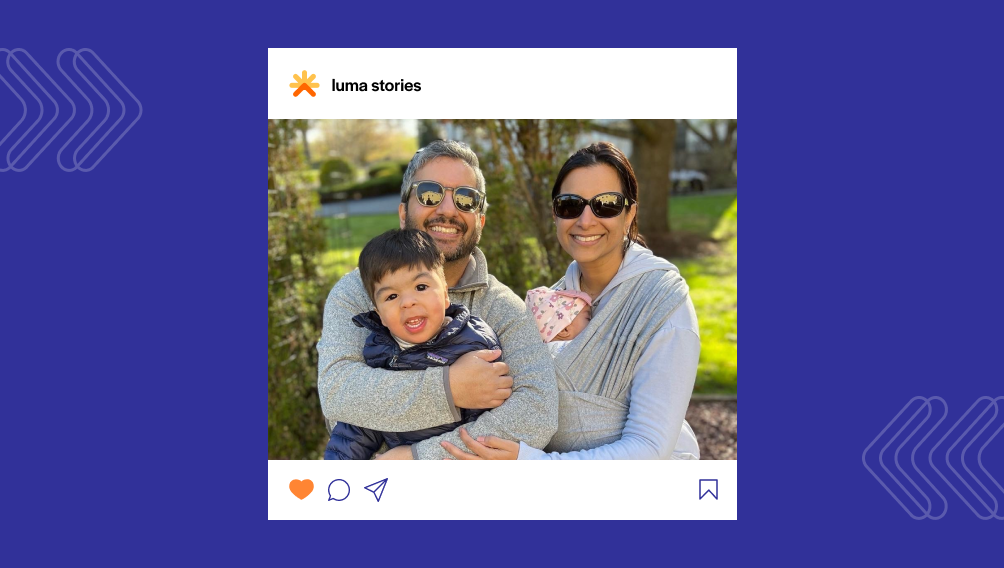Why Patient Success is a series from Luma staff about their experiences as patients and caregivers navigating the healthcare system.
“You have so much on your plate, but you’re also trying to spend time with your loved one and make things as normal as possible,” says Kashif Sheikh, a customer success manager at Luma. As a caregiver for both his father and his son, Kashif has experienced the difference that guidance and resources can make for families navigating serious health conditions.
Kashif’s father Dr. Javed Hasan was a primary care physician who often provided extra medication to his Medicare and Medicaid patients at no out-of-pocket cost. “He had such a patient-centric view of healthcare,” Kashif said. When Dr. Hasan was diagnosed with late-stage pancreatic cancer in 2013, “becoming his caregiver put that legacy into perspective.”
A family full of physicians and his father’s care team on speed dial helped ease some of the uncertainty of providing full-time care. “My Dad’s doctors even gave us their personal phone numbers,” said Kashif. “That was a comfort during a really challenging time.”
Kashif’s next experience as a caregiver was quite different. His son Zayd was born with a rare genetic condition and spent much of his first year between the NICU and a bevy of specialists. “The entire first year, Zayd went to 4 appointments a week – a different doctor for each health issue.”
Managing Zayd’s health journey meant daily calls to different offices and hospitals, and multiple Excel spreadsheets to keep track of the details. “My wife Sara is a rockstar at planning, and she handled a lot of the day to day when I first went back to work – and after she returned to work herself as well,” said Kashif. “Our biggest struggle was coordination of care and figuring out referrals – it was a full-time job.”
These experiences ultimately spurred a professional shift to healthcare. “When I started at Luma, things clicked,” said Kashif. “Patient access is incredibly important, and I see administrators light up when they’re able to communicate with patients more easily. It seems simple, but it really makes a difference.”
Kashif is driven to make a difference for other families in his work at Luma.
“Getting the care you need shouldn’t be a burden – needing care is enough stress in itself. My family has been so lucky to navigate this process with amazing healthcare resources, and with physicians in the family who can provide guidance,” Kashif said. “So many others don’t have those resources – we have to meet every patient where they are.”
